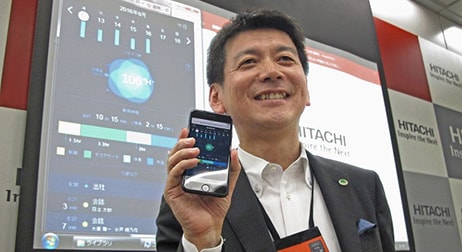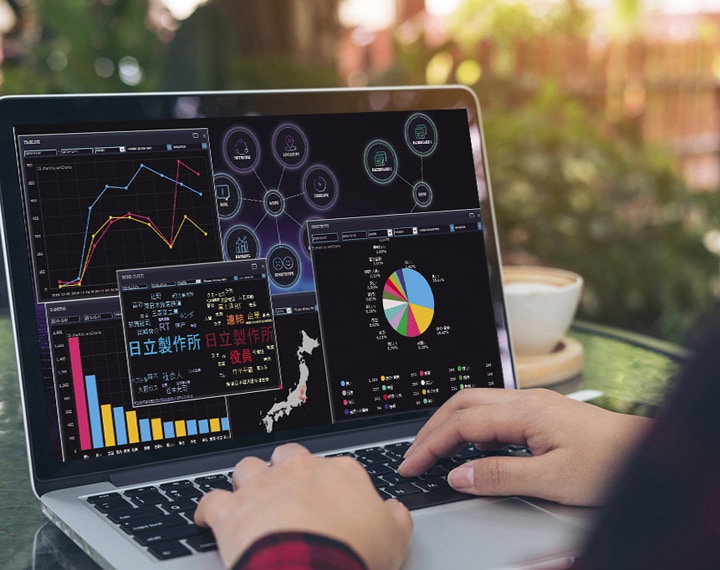Hitachi Establishes a New Company for Visualizing Happiness
Jun. 30, 2020
Yoshihiro Teramoto
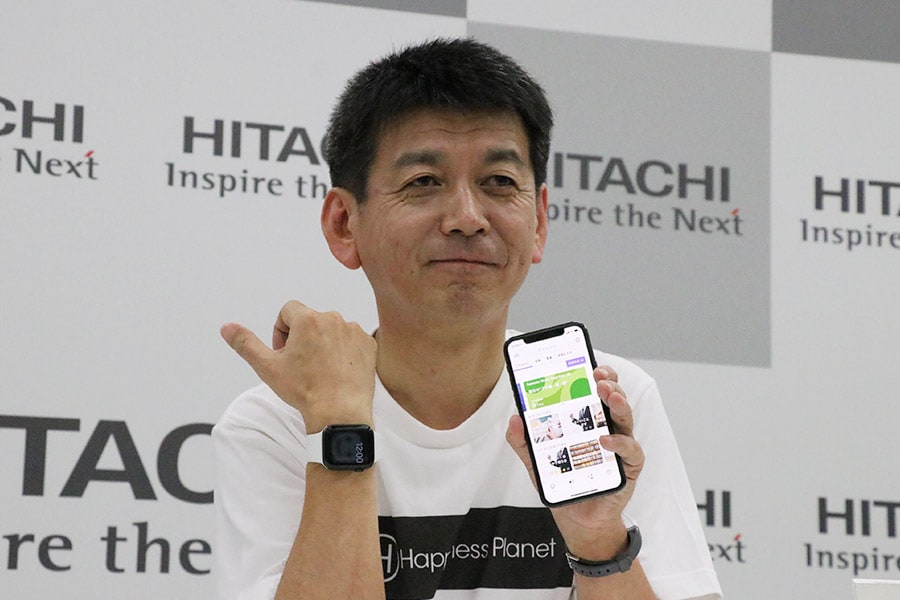
On June 29, 2020, Hitachi, Ltd. announced the establishment of Happiness Planet, a new company located in the city of Kokubunji, Tokyo. Representing the commercialization of technologies for measuring degrees of happiness, the new company aims to support corporate management activities in various industries.
Happiness Planet will handle an app that uses acceleration sensors of smartphones and wearable devices to measure subtle, unconscious movements of the body, which are then converted into quantified measurements of the user’s happiness. The measurement data will be utilized for such projects as creating an organization that promotes positive employee behavior.
Amidst the COVID-19 pandemic, understanding the mental condition of employees working remotely is a rising issues for many companies. The new app can be used to create an environment that encourages a positive attitude among employee, thus expectations are high for this new technology.
Enthusing about the new endeavor, Kazuo Yano, CEO of Happiness Planet and a Hitachi, Ltd. fellow, says, "In order to raise productivity, we have to improve the state of the spirit, that is, the happiness, of working people. It is when people are working happily that productivity grows most, and never the opposite. During these times of the COVID-19 pandemic, I look forward to measuring and using happiness in the creation of a new industry of the future."
The technology that measures happiness
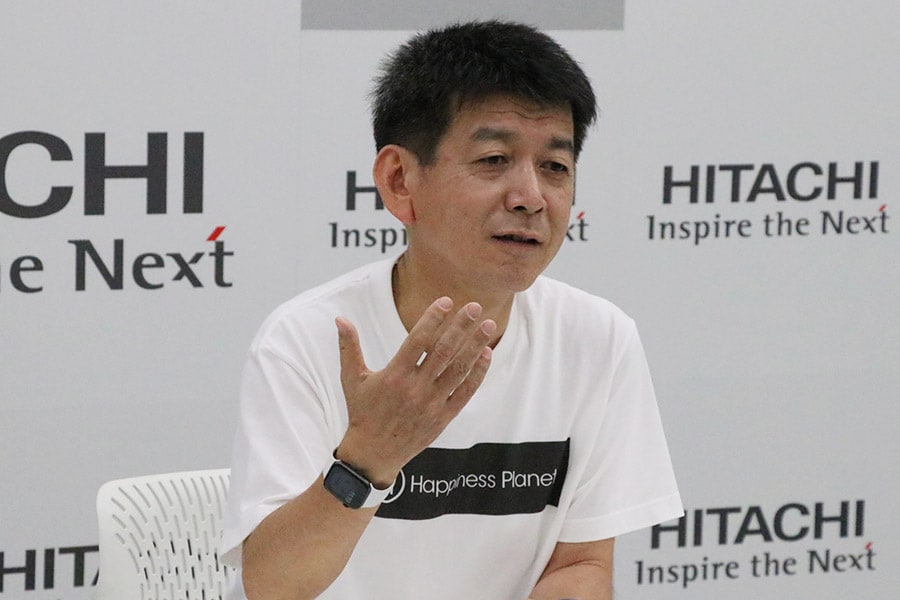
Focusing on the relationship between productivity and human behavior, Hitachi has been using wearable sensors to collect action data since 2004. As a result, a strong correlation was identified between unconscious human body movements and one’s happiness. The index that quantifies this is called the "social happiness index."
According to Yano, "We’ve succeeded in using technology to objectively express good human relations numerically, which had been difficult to quantify. We found out that a good organization has certain features in common: people are mutually connected without imbalances, employees can present their opinions freely and equally during meetings, and the bodily movements of people conversing are in tune with each other."
Finally, in 2017, Hitachi developed Happiness Planet, a smartphone application based on the social happiness index. So far, Proof of Concept has been carried out on about 4,300 people from 83 companies in Japan. Results have shown that organizations with a high social happiness index are able to obtain approximately 30% more orders in corporate sales.
Rising expectation for use during the COVID-19 pandemic
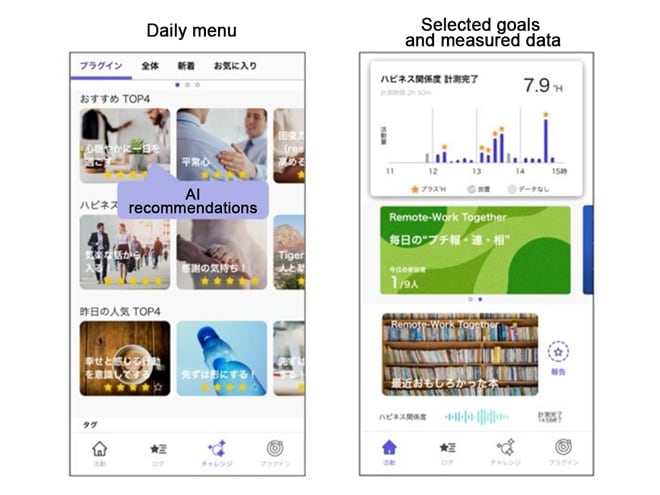
As working remotely becomes the new standard due to the spread of COVID-19, Happiness Planet is being used by Hitachi for management support and team activation.
Yano also points out that, while working at the office involves formal types of communication such as reporting to your boss or giving instructions to your colleagues, it is also conducive to informal conversation, leading to higher degrees of happiness. However, working remotely tends to minimize such casual communication, which not only decreases the degrees of one’s happiness, but also diminishes the formation of new ideas and concepts that would otherwise arise from daily chats.
Yano emphasizes that the Happiness Planet app is equipped with functions for solving such issues. The app has a function known as "Mini News/Info/Consult" which encourages users to carry out communications and consultations more comfortably with team mates. This function provides an opportunity for communicating casually while also making it possible to monitor whether that communication is going well or not.
With a vision toward use in various fields
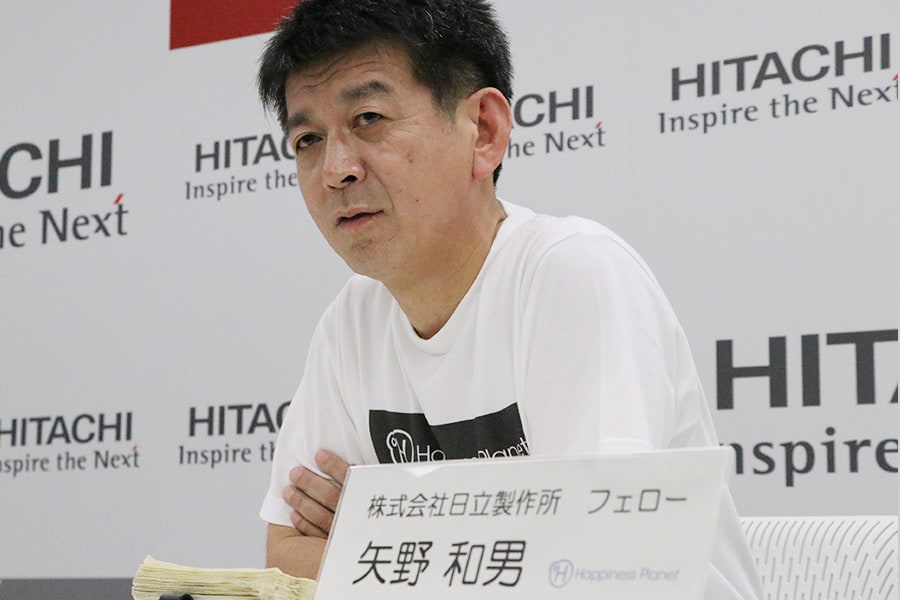
Yano’s new company expands on previous initiatives by deploying its app business as a means of creating organizations where employees can adopt a positive attitude in their daily tasks actions.
Happiness Planet also has a vision for making use of happiness degree measurements in a wider range of fields. These include use in medical care, nursing care, and urban development, in cooperation with such bodies as municipal governments, along with application to finance and insurance services.
Yano says, "When the question 'Has this made people happy?' becomes the new standard of business and services, data related to happiness can be used for service improvement as well the consumer’s criterion when selecting a service. I envisage application in real estate, for example, such that the degree of happiness of residents in a certain area could be used as an index for house hunting. Or, its application to insurance services could lead to lower premiums because people with high happiness degrees have high health assessments."
Happiness Planet is already receiving inquiries for collaborative creation from companies in many different business sectors. Technology is garnering high expectations for use in measuring people’s happiness and well-being.
Measuring Happiness is Key to the Future of Work
 Read our case study to learn more
Read our case study to learn more about Happiness Planet!

